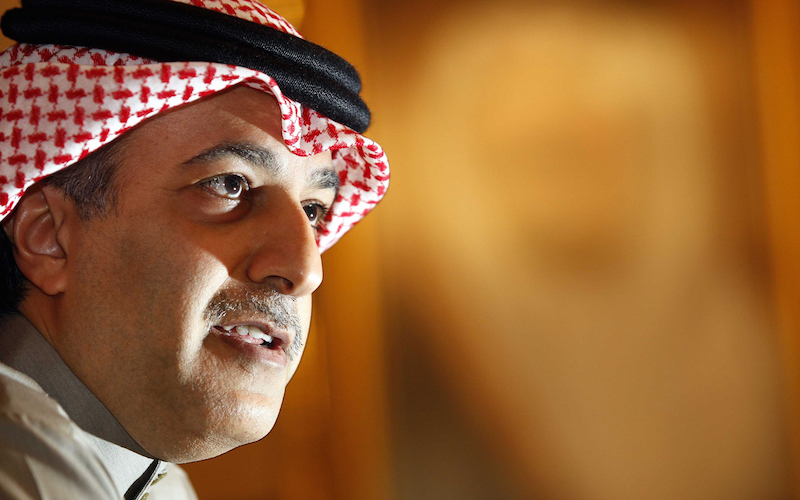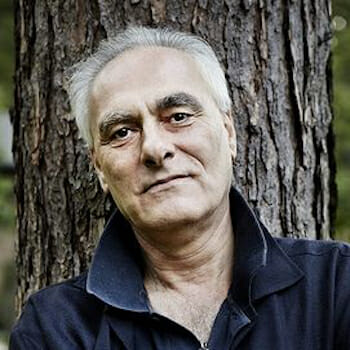
Pressure Builds on Sheikh Salman to Respond to Human Rights Allegations
Pressure is building on Asian Football Confederation president and world soccer body FIFA presidential candidate, Sheikh Salman bin Ebrahim Al Khalifa, to respond with chapter and verse to allegations that he played a role in the detention and abuse of athletes during the 2011 popular uprising in his native Bahrain. The revolt was brutally squashed with the help of Saudi troops.
In recent months the pressure has already prompted Mr. Salman, who refused to discuss the issue for the 4.5 years since the events allegedly occurred, to deny that athletes were abused at the time and reject allegations that he was involved. His denials have left key questions unanswered and moved a prominent German politician, human rights activists, and Mark Pieth, the academic employed by FIFA at one point to oversee its reform efforts, to publicly oppose Mr. Salman’s standing for office.
Mr. Salman has put forward proposals for a reform of FIFA, the scandal-ridden world soccer body, that go some way towards the core of the group’s deep-seated corruption problems. Mr. Salman’s proposals include a separation of FIFA’s governance role from the group’s significant business interests that include billions of dollars in revenues from sponsorship and World Cup broadcasting rights.
Despite the merit of his proposals, Mr. Salman has also demonstrated that he is the product of an autocratic system and the scion of an entitled ruling family by employing lawyers to handle criticism and probing questions in the media in a bid to straight out of the blocks intimidate journalists rather than engage them and resort to legal steps only as a last resort.
In doing so, Mr. Salman follows in the footsteps of his relative and former sports superior, Prince Nasser bin Hamad al-Khalifa, a son of King Hamad bin Isa Al Khalifa, commander of the Royal Guard and head of the Bahrain Olympic Committee and the government’s Supreme Council for Youth and Sports.
Mr. Salman employs the same lawyers as Prince Nasser, London-based Schillings whose motto is ‘Defending Reputation, Demanding Privacy.’ Schillings in 2014 unsuccessfully attempted to fundamentally alter in line with the Bahrain government’s version of events this writer’s reporting on the lifting of Prince Nasser’s immunity by an English court. The court lifted Prince Nasser’s immunity in a case initiated by several Bahrainis who alleged that they were tortured in the aftermath of the 2011 popular uprising.
In 2011, the Bahrain News Agency (BNA) reported that Prince Nasser had issued a decree ordering that measures be taken against those guilty of insulting Bahrain and its leadership. Prince Nasser formed the committee after an earlier royal decree had declared a state of emergency in Bahrain. The royal decree allowed the Bahrain military to crackdown on the protests and establish military courts. Mr. Salman reportedly was at the time general secretary of the supreme sports and youth council.
A series of BNA stories further reported on the implementation of Prince Nasser’s decree and the launch of a committee to investigate “breaches by individuals associated with the sports movement during the recent unfortunate events in the Kingdom of Bahrain.” BNA reported that the committee met on 10 April 2011 under Mr. Salman’s chairmanship.
BNA also reported that the Bahrain Football Association (BFA) that was at the time headed by Mr. Salman threatened penalties and suspensions for those who “violated the law,” including athletes, administrators and coaches who participated in “illegal demonstrations” or any other act that aims to “overthrow the regime or insult national figures.” BNA said that the BFA had suspended clubs, noting that “the Bahrain FA stressed that these penalties were issued in accordance with the Investigative Committee’s decisions concerning all those who have offended our leadership and our precious Kingdom.”
A Bahraini newspaper, in another indication of the implementation of Prince Nasser’s decree, quoted at the time Bahrain Table Tennis Association Chairman Sheikh Ahmed bin Hamad Al Khalifa, as saying that his group had decided to act against players who “offended the nation and its wise leadership.”
BNA is the official organ of the government in a country that Reporters Without Borders ranks number 163 out of 180 countries; the media are tightly controlled through repressive articles in its penal code; journalists, activists, photographers and social media users are targeted; and in which writers exercise self-censorship including avoiding statements of fact like the fact that Shiites constitute the majority in Bahrain.
In total, an estimated 150 athletes and sports executives were arrested on the basis of Prince Nasser’s decree. Several alleged immediately after their release that they were tortured during their detention, among them two members of Bahrain’s national soccer team. The players remained silent for the 4.5 years since they first alleged having been abused. Recently, however, they denied the allegations in media appearances organized by Mr. Salman’s election campaign.
In his refusal in the last five years to discuss the allegations, Mr. Salman insisted that sports and politics was separate, a statement contradicted by BNA’s reporting and the fact that Bahrain’s ruling family keeps a tight rein on the country’s sports.
Since launching his presidential campaign, Mr. Salman has denied in interviews the establishment of the investigation committee and the assertion that he headed it but has yet to directly address the consistent BNA reporting. At no time, did Mr. Salman suggest that he objected to the penalizing of athletes and executives or that he would not have accepted to chair the committee if it had been established.
Mr. Salman’s position has sparked opposition to his FIFA presidential candidacy.
Speaking to Germany’s Frankfurter Algemeine Zeitung, Mr. Pieth who headed an independent governance committee for FIFA that issued its recommendations in 2013, called for strong opposition to Mr. Salman’s candidacy.
“The outcry has to come from the 209 (national) associations” that elect the FIFA president, Mr. Pieth said. “You have to ask: Is Salman a credible representative for democracy and a new start? Is he suitable? A representative of an autocratic ruling family is not suitable to lead this institution out of the crisis,” he added.
Referring to support for Mr. Salman by Kuwaiti Sheikh Ahmad Al-Fahad Al-Sabah widely viewed as one of the most powerful men in international sports, Mr. Pieth went on to say that “we have a mechanism that we call patronage, not a mafia. But they are similar. It is perpetuated by the people in question.”
A member of Kuwait’s ruling family as well as of the International Olympic Committee and FIFA’s executive committee Mr. Al-Sabah is locked into a power struggle within his own ruling family. He is appealing a six-month prison sentence for allegedly violating a gag order and faces a civil suit for damages based on allegations that he and his brother, the head of the Kuwaiti Football Association, were responsible for Kuwait’s recent suspension by the IOC, FIFA and a host of other international sports associations.
Mr. Salman’s foremost rival among the six presidential candidate, Jordan’s Prince Ali Bin Al-Hussein, appeared to be hinting at the patronage mechanism when he this month registered his concern with the FIFA electoral committee about a cooperation agreement with the Confederation of African Football (CAF) that the Bahraini signed last week on behalf of the AFC. The agreement or at least its timing was widely seen as an attempt to secure Africa’s votes for Mr. Salman.
“I have always promoted cross-regional understanding, however the timing of this MOU between the AFC and the CAF looks like a blatant attempt to engineer a bloc vote,” Prince Ali said.
In a separate statement, Claudia Roth, deputy chair of the Bundestag, the German parliament and head of the Green Party, said Mr. Salman’s election would be “a mockery of the victims of the human rights abuses in Bahrain… An attempt at democratization, an opening with the recognition of equal rights for a large percentage of the population was suppressed with brutal violence in 2011. To that end tanks were dispatched to Bahrain from Saudi Arabia. Many were killed and wounded. Among others, athletes were arrested; there are clear indications of torture that also include soccer players,” Ms. Roth said.

